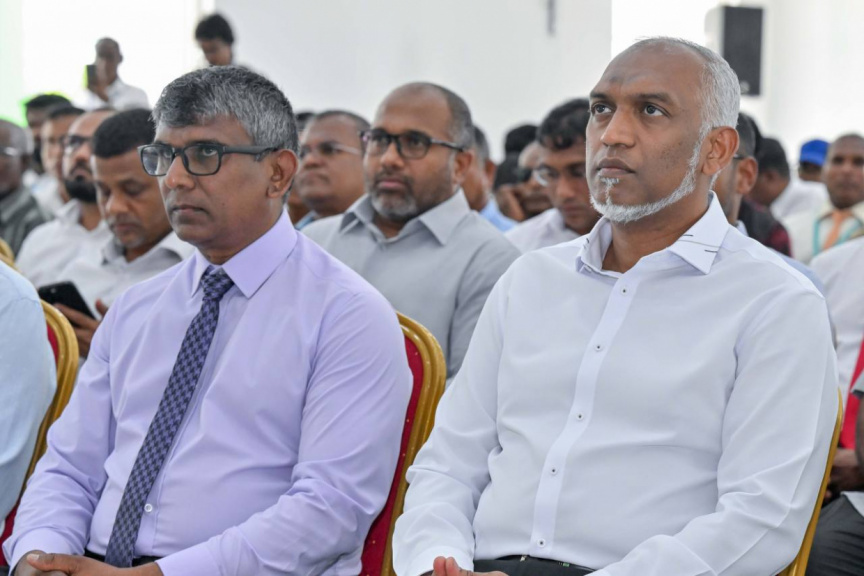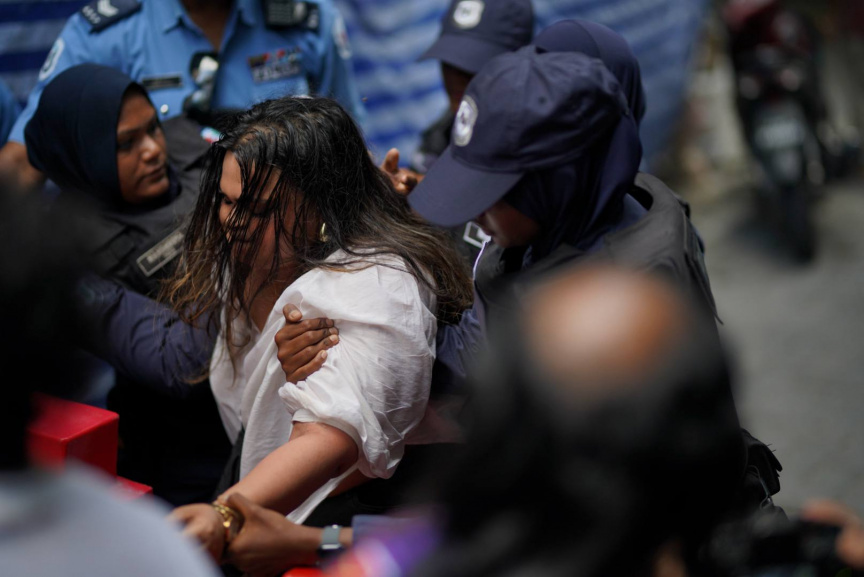
President Dr. Mohamed Muizzu ratifies a bill. (File Photo/President's Office)
President Dr. Mohamed Muizzu on Thursday ratified a media bill that seeks to replace the existing self-regulatory system with a government-controlled commission, despite appeals from both local and international organizations urging him against enacting the contentious legislature into law over its potential implications for press freedom and free speech in the Maldives.
On August 18, Thulhaadhoo MP Abdul Hannan Aboobakr, an independent lawmaker aligned with the government, submitted a bill that seeks to dissolve the Maldives Media Council (MMC) and the Maldives Broadcasting Commission (BroadCom), replacing them with a single regulatory body — a seven-member Maldives Media and Broadcasting Commission (MMBC).

The bill, widely panned both local and international journalism groups for its vague and ambiguous terminology, was openly backed by the People’s National Congress (PNC) administration, with a senior lawmaker from the party, Deputy Speaker Ahmed Nazim admitting to being involved in the drafting process.
The Parliament worked through recess on the bill, and the PNC used its supermajority to ensure its passage with a majority vote of 60-1 in an extraordinary sitting on Tuesday, amid protests both within and outside the Parliament – the former of which led to several parliamentarians from the main opposition Maldivian Democratic Party (MDP) getting forcibly removed from the chambers.

The passage of the contentious bill had come just hours after a petition signed by 151 journalists from 41 different media outlets demanding the withdrawal of the bill was rejected by the Petitions Committee, which decided that the concerns raised in the petition had been properly addressed in the amendments made during the review by the Independent Institutions Committee.
The bill was ratified by President Muizzu on Thursday morning, putting it to immediate force.
With the ratification of the legislature, the BroadCom and MMC have been dissolved and replaced with a seven-member MMBC, composed of three members appointed by the Parliament and four elected by registered medias. The legislative assembly is also empowered to appoint the commission’s chairperson, and all members, including those elected by medias, can be dismissed by the Parliament, in which the ruling PNC enjoys a supermajority.

The legislature also grants the MMBC sweeping powers to fine, suspend and shut down news outlets, including for coverage that the commission deems contrary to religious norms, national security or public order.
The initial version of the bill had said it would not be the Parliament but the President himself who appointed three members as well as the chairperson of the commission. However, these provisions, along with a number of others, were amended during the committee review following pushback from local and international media rights groups.
While journalist protest against the bill as a direct threat to press freedom and a crackdown on dissent, PNC administration touts it as important legislature that protects people from defamation, disinformation and misinformation, and paves the path for accountability in the media field.

International rights groups, including the International Federation of Journalists (IFJ), the Committee to Protect Journalists (CPJ), and Reporters Without Borders (RSF), as well as the US embassy in Male’ have voiced strong concern over the legislature.